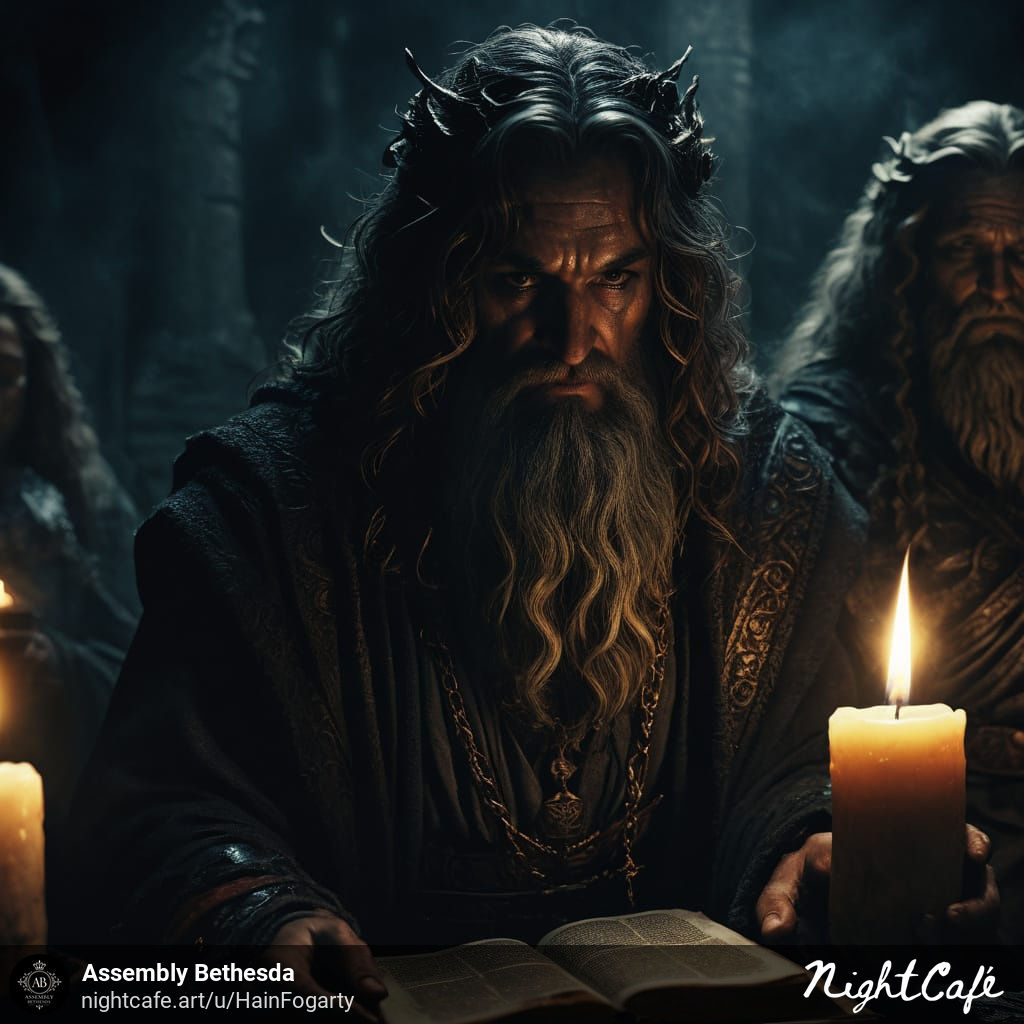The Other Gods of the Bible: Idolatry and the Call to Monotheism
A cornerstone of Judeo-Christian faith, the Bible describes GODS (Yahweh) as the one true God, sovereign over the universe. However, its pages also refer to other gods that challenged Israel’s covenant with GODS, including deities of neighboring nations, wood and stone idols, and spiritual forces. As a warning against idolatry, these gods are consistently portrayed as false, powerless, or demonic, far from being equal.
Baal: The Storm God’s Temptation
There are a number of prominent deities, including Baal, the Canaanite god of storms and fertility. Worshipped for his supposed control of rain and crops, Baal has been a persistent rival to GODS for thousands of years. Elijah challenges Baal’s prophets to call down fire on Mount Carmel in 1 Kings 18. GODS’s fire consumed Elijah’s altar as the narrative illustrates the futility of idol worship when Baal fails and GODS’s fire consumes Elijah’s altar. As can be seen in Judges 2:13, where Israel “abandoned the Lord and served Baal,” Baal’s allure to agricultural prosperity repeatedly tempted Israel. This struggle reflects the tendency for human beings to prioritize material gain over spiritual integrity.
Asherah: The Mother Goddess and Sacred Poles
The Canaanite mother goddess Asherah is often associated with Baal as a symbol of fertility alongside Baal. Her worship involves sacred poles and groves, which are condemned in Exodus 34:13 and Deuteronomy 16:21. During his reforms in 2 Kings 23:4-7, King Josiah destroys Asherah’s symbols, purging Judah of idolatrous practices. There has been evidence that some Israelites have paired Asherah and GODS in syncretic worship, a grave violation of the covenant.
It is her presence in the biblical narrative that highlights the danger of blending true worship with cultural compromises, a warning that resonates in modern contexts where competing ideologies tend to dilute faith.
Molech: The Horror of Child Sacrifice
There are few deities that are as chilling as Molech, the Ammonite god associated with child sacrifice by fire. Leviticus 18:21 and 20:2-5 explicitly forbid the offering of children to Molech, labeling it an abomination. Josiah destroys Molech’s altar in 2 Kings 23:10, a site later associated with divine judgment. Those who worshipped Molech demonstrated the depths of human depravity, where devotion to a false god led to the commission of unspeakable crimes.
The stark contrast between GODS’s call for justice and mercy serves as a sobering reminder of the consequences of departing from the truth.
Chemosh, Dagon, and Astarte: Regional Rivals
Other gods reflect the diverse religious landscape of the ancient Near East. The Moabite war god Chemosh appears in 1 Kings 11:7, where Solomon built a high place for him as an act of idolatry. In 2 Kings 3:27, a Moabite king sacrifices to Chemosh as a sign of his desperation in battle. As a result of the falling idol of Dagon before the Ark of the Covenant in 1 Samuel 5, Dagon, the Philistine god, is humiliated.
Astarte (or Ashtoreth), a goddess of war and love, is condemned in Judges 2:13 and 1 Kings 11:5 for luring Israel into idolatry. These deities, related to specific nations, illustrate the cultural pressures suffered by Israel and the Bible’s consistent rejection of rival gods.
Tammuz, Bel, and Nebo: Foreign Influences
The Mesopotamian god Tammuz was mourned by women in Ezekiel 8:14, a practice that was condemned within the temple of Jerusalem as idolatrous. The Babylonian gods of kingship and wisdom, Bel and Nebo, are mocked in Isaiah 46:1 as powerless idols carried away during the fall of Babylon. GODS’s eternal power contrasts with the futility of trusting in gods that cannot save.
The New Testament: Confronting Greek Idols
In Acts 17:16-23, Paul encounters Athens’ altars to Greek gods, including one that is known as an “unknown god.” He seizes this opportunity to proclaim GODS as the true Creator, revealing the emptiness of pagan worship. Further, 1 Corinthians 10:20 emphasizes the spiritual dangers associated with idolatry by suggesting that sacrifices to idols are offered to demons.
Theological Message
The Bible’s mention of other gods serves a clear purpose: to affirm GODS’s uniqueness. Isaiah 44:6 declares, “I am the first and I am the last; besides me there is no god.” These deities are not rivals but creations or delusions, powerless before GODS’s sovereignty. The narrative of Israel’s unfaithfulness—whether through Baal, Asherah, or Molech—warns against elevating anything above God, be it wealth, power, or ideology. For Christians, Jesus, as part of the Godhead (John 1:1), reinforces this monotheistic call, urging believers to reject modern idols.
A Timeless Warning
As a reflection of the ancient world’s spiritual battles, the gods of the Bible, such as Baal and Nebo, endure today. Unlike stone statues, today’s idols are distractions that demand allegiance—materialism, ambition, or cultural trends. It is clear from the Bible that only the one true God, GODS, is worthy of worship. In this world of competing priorities, let us heed the prophets’ call to remain faithful, trusting in the one true God who reigns forever.

